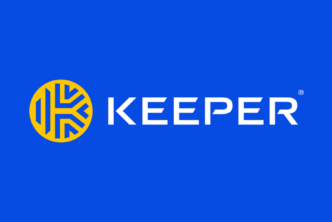Last year, as our team—deeply connected to Ukraine—faced intense mental exhaustion amid the full-scale war, I was driven to find a way to mitigate this strain. It was clear we needed more than just incremental changes; we needed a transformation in how we work. Thus, I decided to introduce a four-day workweek (4DWW) at YouTeam. This shift wasn’t simply about cutting hours; it was about intensifying our focus and productivity within a condensed time frame, giving us the option for longer weekends to recharge. The 4DWW demands a full week’s work in just four days and has proven to be a powerful motivator, enhancing our concentration, boosting creativity, and reducing procrastination.
Crucially, the success of this program relies on the maturity and accountability of our team members. They have embraced this challenge, demonstrating that they can manage themselves effectively and maintain high standards of performance. A year into this journey, I can confidently affirm that our key values of maturity and freedom have not only created a relaxed work environment but have also driven our collective success. Implementing a 4DWW may not be suitable for every team, but for us, it has been a testament to the resilience and dedication of our people.
What I hadn’t fully anticipated was how this change would also significantly benefit my personal life. Balancing the intense responsibilities of a young family with two small kids and steering a startup has always felt like juggling two wild adventures at once. However, the 4DWW has provided not just me but all of us with valuable ‘me’ time, proving its worth far beyond the professional realm.
I wrote this article to share my experiences and thoughts about the four-day workweek with other companies that are considering implementing a condensed schedule for their teams.
Table of Contents
Introducing the four-day workweek at YouTeam
According to our Staff Wellbeing Survey conducted in March 2023, the overwhelming majority agreed that the corporate environment at YouTeam brought a healthy balance between work and personal life, while 95% of employees claimed the amount of work they are expected to complete most often felt manageable and reasonable.
However, 37% reported high stress levels caused by the global economic downturn, job insecurity, and the ongoing war in Ukraine, while 62% claimed they had little to no energy to do anything outside of their immediate tasks.
In April 2023, shortly after the survey results, YouTeam introduced a 4DWW program, which has been in place ever since. Team members can take a paid day off on Monday or Friday, although sometimes, with management approval, they can book a different day for appointments or travel. Booked days off are displayed in our shared Google Calendar, vacation tracker, and Slack, so all team members know who is working and who is not on a given day.
By switching to a four-day workweek, we reduced the number of vacation days from 20 to 16 working days. Moreover, no additional days off are granted in weeks when employees use other paid time off, such as sick leave. In the event of a public holiday, team members can choose to take their regular day off or the public holiday.
Finally, to maintain productivity during the four-day week, we use task trackers to help us define the scope of work and distribute tasks by day—both those that require immediate attention and those that need to be completed by the end of the week.
Maintaining quality customer support
Some companies were concerned that a shorter work week would lead to customer dissatisfaction due to lower levels of service. At YouTeam, we had these concerns as well because we put special effort into providing quality customer service and ensuring that each of our clients receives timely feedback.
We decided to distribute additional days off within the Customer Success team, with some colleagues taking Fridays off and others taking Mondays. The team also conducts check-ins throughout the week to stay updated on each other’s most critical and urgent cases.
They have developed qualities such as proactively reaching out to customers and focusing on solutions rather than problems. Additionally, they have built a process for handling redundant communications, ensuring that customers and vendors don’t have to deal with unnecessary back-and-forth messages and can focus on what matters most.
The impact of a four-day workweek at YouTeam
After nine months of implementing the four-day workweek, we surveyed our employees and found that the new schedule reduced the risk of emotional burnout, decreased employee turnover, and encouraged team members to find creative ways to optimize their workflow.
Furthermore, our initiative not only increased overall happiness but also had no adverse effects on our key performance indicators (KPIs). Throughout the experiment, our performance metrics remained stable, and YouTeam is now experiencing a growth phase.
Other benefits of the 4DWW as shared by our colleagues:
- Opportunities to volunteer or visit institutions that are only open on weekdays, such as banks, embassies, and medical facilities. Employees could also use their extra day off to follow fitness routine at gym or visit beauty parlors, which tend to be less busy during business hours.
- The 4-day week has a cumulative effect. Over time, employees accumulated more intellectual resources that could be spent on long-planned education, creative activities such as drawing, music, or crafts, and reading professional literature. Less fatigue means more desire to learn new things.
- Thanks to an additional day off, colleagues could occasionally arrange a “mini-vacation”, going to the countryside or taking a road trip. It also allowed for an even distribution of time for visiting relatives, housework, and hobbies. However, in some weeks, employees used a portion of their free Friday for work experiments, professional development, or tasks that could not be completed during the week.
Why did a four-day workweek become possible in YouTeam?
People on our team agree that a four-day week, flexible working hours, and lack of time trackers motivate and encourage effective collaboration.
However, the shortened week would not be possible without a YouTeam culture built around the following principles, and we hire exactly the right people to fit in.
- Autonomy: Complete freedom in how we achieve our goals and present our ideas, as long as it leads to a positive outcome. This freedom allows employees to be creative and take responsibility for their actions. In 2023, 85% of our employees agreed that they find opportunities in difficult situations, and 82% said they find creative ways to solve problems, which confirms the high level of autonomy present in our team.
- Maturity: Our company is made up of passionate, mature professionals where everyone is accountable for their work, and colleagues can always count on professional help and advice.
Giving autonomy in decision-making and building a culture of trust is what keeps YouTeam productive in a shortened work week. According to the Harvard Business Review, employees in high-trust organizations have more energy at work and stay with their companies longer. In addition, they suffer less chronic stress, take fewer sick days, and are more satisfied with their lives.
Further reading:
Secret recipes on working with remote developers: an interview with Craig Cannon, former Director of Marketing at Y Combinator
What do research studies tell us about the four-day workweek?
Groups like 4 Day Week Global, which advocate for shorter workweeks worldwide, report that reduced burnout is the primary benefit of a condensed schedule. Moreover, pilot studies in the U.K., Spain, Portugal, and South Africa suggest that four-day workweeks can help employees reduce burnout, manage stress, get more sleep and exercise, and spend additional quality time with their loved ones.
However, these studies contradict the findings of a Gallup survey, which shows that people who worked four days a week were slightly more likely to feel burned out compared to those with traditional schedules. The consulting company cites the most probable reason as the pressure to fit all tasks into a condensed week.
Final thoughts
As we look ahead, the future of work seems poised for significant transformations. At YouTeam, our adoption of the 4DWW is just the beginning. We are committed to continuously exploring how flexible schedules, remote work, and employee empowerment can not only adapt to but also shape the future of work. By cultivating an environment where flexibility and productivity go hand in hand, we aim to lead by example, proving that the well-being of our team is not just good policy—it’s a cornerstone of enduring success.






